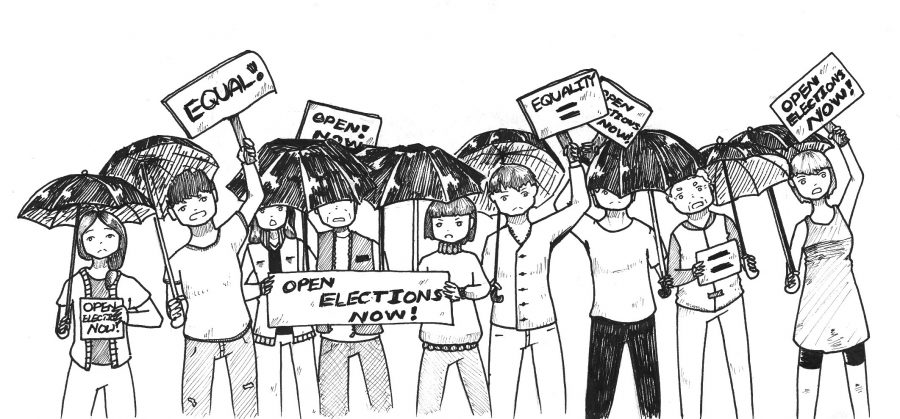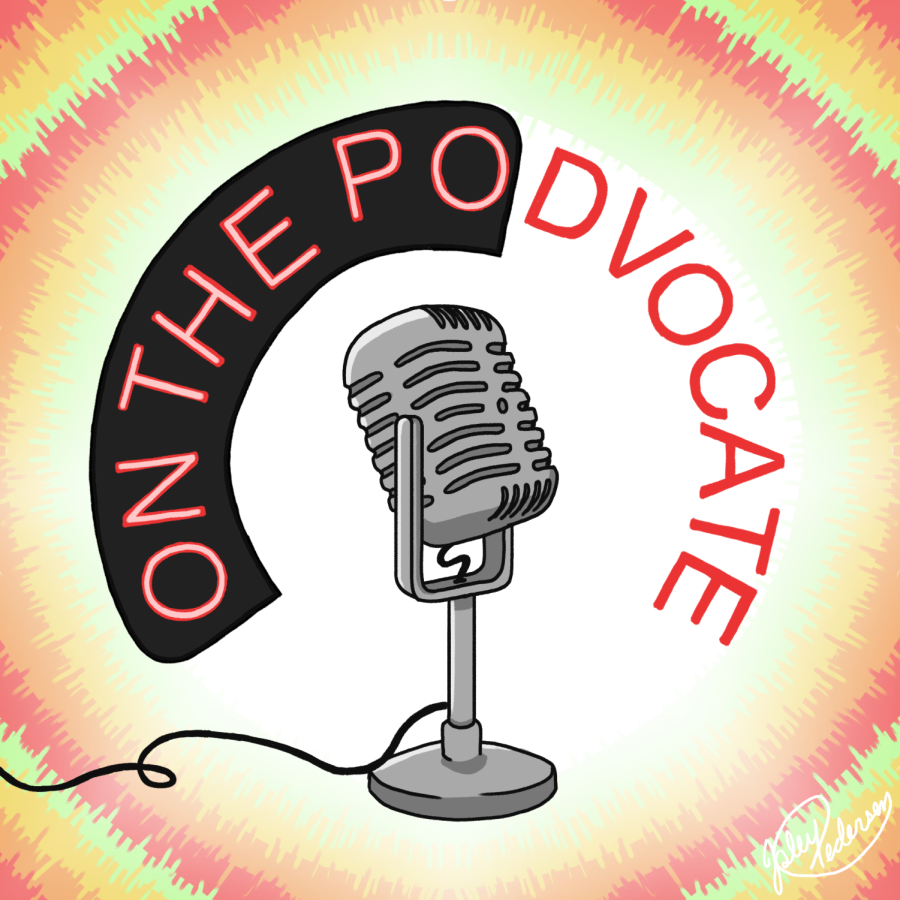Note: This article was initially published on Nov. 11, 2014, so some information may not be up-to-date.
[dropcap size=small]I[/dropcap]t has already been three weeks since the young, pro-democratic protesters in Hong Kong began to camp out on streets in the hopes of establishing true democracy. The conflict came to a stalemate as Hong Kong and Chinese governments refused to take protester demands seriously. However, public disinterest and frustration has continued to rise as the street occupations affect the daily lives of commuters, drivers, and shop keepers surrounding the protest sites. In order to resolve the deadlock, the demonstrators should end the protest while they still have the world’s attention and support. Moreover, they should revise their set of demands with an eye toward compromise with the government.
These protests, also known as the Umbrella Revolution, were triggered when China’s Standing Committee of the National People’s Congress (NPCSC) reformed the 2017 Chief Executive elections by banning civil nominations. Previous reform efforts in Hong Kong had been moving toward universal suffrage, as acceded by Article 45 and 68 of its constitution, which states that the Chief Executive elections should be open to everyone. However, Beijing rejected the idea of open elections, claiming that they allow for the city’s poorest citizens to exert greater power over the political system, which can lead to a mob rule. The current revised framework states that the nominating committee, composed largely of Beijing loyalist members, is to select two or three electoral candidates before the election opens to the public. Inevitably, pro-democracy activists demanded that the government reverse the decision, arguing that it threatened democracy.
No matter how much the protestors persist, the Chinese government is unlikely to agree to their current demands.
The activist group, the bulk of which is formed by the younger generation, has been occupying sidewalks near government buildings in order to get their voices heard. However, this has begun to cause much dissent among merchants and truck and cab drivers in the area. The road blocks at the three protest sites (Mong Kok, Causeway Bay, and Admiralty), have disrupted as much as 40 percent of bus routes and affected shop sales, according to The Wall Street Journal. Currently, the government and the activists are at an impasse, causing the movement to drag out. The Hong Kong government has proven itself unwilling to acquiesce to the demands of the protesters, and has used violence and tear gas to suppress the movement. Similarly, the protesters have appeared unwilling to modify their demands. If the protest gets prolonged for much longer, the public will eventually lose interest, and the demonstrators will lose support in the long run.
Additionally, the more the movement is protracted, the more likely it is to be perceived as a imminent threat to the Chinese government. This would unwisely provoke ferocious repression from the Chinese army, which has not yet intervened (as of yet, only the Hong Kong police has been involved with the protests). “The longer the protest goes on, the greater the risk of something going wrong,” said Anson Chan, formerly No. 2 official in Hong Kong. The Chinese government is convinced that the protesters are influenced by “foreign anti-China forces,” according to David Zweig, professor of social sciences at Hong Kong University of Science and Technology. For this very reason, Chinese president Xi Jinping and the Chinese government have been blocking out news of the protest from mainland China’s media channels in fear that it might trigger democratic movements in Beijing.
No matter how long the protesters persist, the Chinese government is unlikely to agree to their current demands. China currently has the power to nominate candidates for the elections in Hong Kong. Even if the Hong Kong government was to work with the protesters, it would still require the Chinese government to approve of any policy changes, which is improbable since China does not want to give up its political influence in Hong Kong elections. In view of this situation, the protesters should pragmatically revise their demands in order to come to an agreement.
If the protest is prolonged for much longer, the public will eventually lose interest, and the demonstrators will lose support in the long run.
However, China is more likely to accommodate more moderate demands in order to avoid appearing as a highly oppressive power. As an economically advancing country, China does not want developed, democratic countries to perceive it as narrow minded and tyrannical. One solution that would appease both sides is the removal of Hong Kong’s current chief executive, C.Y. Leung, who has become unpopular among protesters after he allowed the police to use tear gas on them.
The demonstrators should take advantage of the global attention and support while it prevails, and utilize China’s desire to shed its image as an oppressive ruler. The sooner they act to clear out the streets and end the protest, the more they stand to gain from the protest. However, if they hesitate or choose to extend the roadblocks unnecessarily, they risk diverting public interest, losing international support and facing oppression by the Chinese army.





